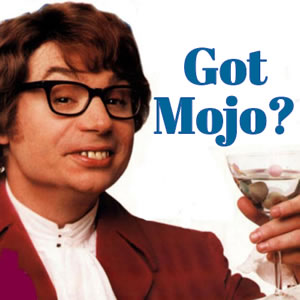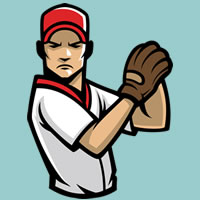Over the last several weeks, I received a couple of e-mails from writers who told me they were experts in various parts of the world.
One fancied himself an Asia expert; another, an Israel expert.
The first one really threw me, because I can’t even call myself an expert on the country I’ve spent my entire life in, so how could someone consider himself an expert on nearly 50 countries? I asked how he was an expert and he told me that he had traveled to several Asian countries, one he even returned to for a second time.
The Israel pro explained that she felt a great affinity to Israel because her father was Jewish and she had spent a month there, visiting “every square inch.”
The strong message all over the media front has always been—niche. Get a niche. Become an expert. I’ve even written about it in this column.
But what makes an expert? It’s time to really examine that question if you’re going to present yourself in such a way.
The real experts I’ve met have seriously impressed me. When I ask them a random question, like how many people live in the country? , they can answer it immediately. No…”um, er..I’ll get back to you.” A real expert has layers and layers of experience visiting the country or region they are specializing in. They can tell you where the luxury hotels and main museums are, but they can also tell you about the little neighborhoods no one outside the country has ever heard of. They also know the country in its context, how it fits in and relates to its neighbors.
All of this is important even if you are just writing short touristy articles. You are influencing where people are traveling to and it’s a powerful position.
As much as I’ve been surprised at the self-proclaimed experts who can’t name the prime ministers of the countries they are experts in, I’ve met many writers who have really astounded me with the extensive knowledge they have about an individual country or region.
One writer in particular has really impressed me with her in-depth of knowledge of South Africa. She was an African studies major, she’s been to the country many times, has lived and studied there. She knows the history through and through and how it’s impacting modern day South Africa. Whenever I seriously need to know something, I don’t Google it. I call her. She’s an expert, hands down. She knows the country better than most South Africans.
All of this is to say that it’s fine to call yourself an expert. Just keep in mind that one or two press visits to an area does not an expert make.
To wear that mantle of expertise, you’ve got to dig a whole lot deeper.
~ Susan
Do you focus on a niche? Share your tips for becoming an expert!






Being an expert is obviously to have a much deeper understanding and knowledge about a subject than most people have. In most proffessions this is something that is acheivved over years of experience. The contemporary trend where people pose as experts after reading a book about something is just ridiculous. So beware of expert claims.
Great post, I often meet such experts on the road and roll my eyes. Seventeen years on the road and the only thing I am an expert in being open to learning!
I agree with your outlook, Dianne – thanks for commenting!
I’ve always hated the concept of needing to have a niche, and I will be the first to say that my niche is nicheless. I’m really intrigued by the fact that people claim to be experts of a certain area. Places are complicated; I can’t imagine ever knowing one well enough to say such a thing.
I don’t think it’s really *necessary* for travel writers to have a niche, and I know many who are successful being nicheless, but I do think that if there is something/somewhere one knows really, really well, it can help to draw others interested in the same thing/place to them when they position themselves in a niche.
I agree with Trisha. Many editors of major publications tend to go directly to writers who they know cover specific regions pretty well. Otherwise, they’ll just assign generic pieces to their handful of go-to writers.
I think it’s possible to be an expert in finding answers about a place, too. I’m going to use myself here, but I’m NOT claiming expertise, oh no no no.
I used to live in Austria. I lived in a TINY town an hour and a half from the nearest real city. I wouldn’t call myself an Austria expert not by a long shot — I had a passing familiarty with the urban areas, though I knew our specific region very well. People still ask me where to eat in Vienna, I have no freaking idea. (Well, except for cake, I know where to get cake.) What I DO know is that I can ask a guy I know who’s lived in Vienna for 20 plus years.
I’m just saying that there’s a certain quality of expertise in being able to find stuff out, too.
But I’m not disagreeing with you, not one bit. Just expanding the definition a little. Becuase true experts, the ones who know the population and where to eat and what happened in 1872? They’re really, really, really rare. And if you’re relying on them alone, you might have to wait a long time before you find one.
I totally agree with you, Pam. Being resourceful is a great skill and a completely necessary one for a journalist. Unlikely you will find a journalist billing him or herself an expert though, at least on subjects he or she is putting that skill into practice for.
I agree also Pam…..the only really true ‘experts’ I’ve come across are those who live in the place they’re expert about, and not just live there, but really get out an experience all there is to offer, exploring whatever is new, and continually learning about their environment. Some people are great at that, others not so much. I’ve lived in Scottsdale for over 10 years, but I’d never consider myself an expert about anything here (except the weather), because aside from my usual haunts, I rarely explore where I live – I just don’t have the interest in it. Like you, I can find out if I need to, and that is a good skill to have.
But like Susan I’m seeing a trend these days of people calling themselves experts when they really aren’t – before anyone uses that word to describe him- or herself, they really need to understand what it means.
Solid points Pam. Being able to deliver well-researched pieces time and time again also adds value to a writer’s portfolio and sense of “expertise”.
Just to add one final thought on this: As travel writers, we need to continually strive to listen to places as best as we can and not just constantly whirlwind through them at every opportunity we get without trying to look for deeper stories – be it an insider restaurant or specific individual.
It’s very easy to find, say, multiple “10 Things to Do in Dublin” travel articles, but very rarely can I find a different spin on specific places in Dublin that show deeper research and time spent truly getting beneath it.
This also wraps back to Pam’s point about being able to research and find other ways of accessing a place (via well-connected locals) if you’re not locally based there yourself.
Excellent point, Lola! But I also believe that there is a need for both……for example, I’m headed to Dublin this month, and while I love a well-written travel essay, what I really need is some ideas for things to do while I’m there…..but in my opinion both require the ability to research and the best pieces are those that go in-depth, so you and Pam are both right on that score, there is a certain expertise at being able to produce a quality article.